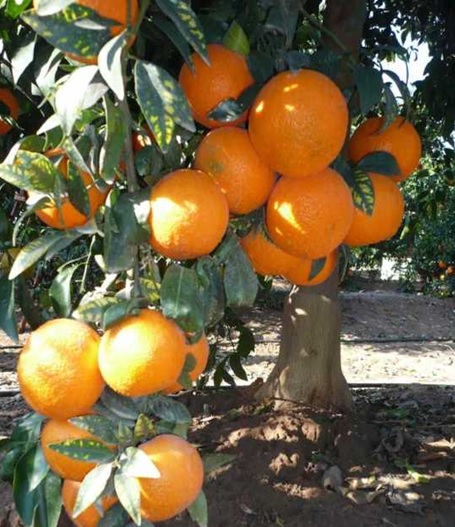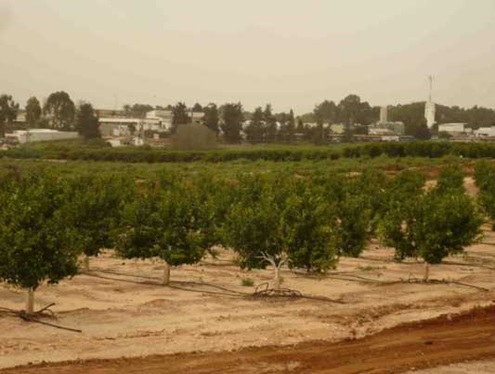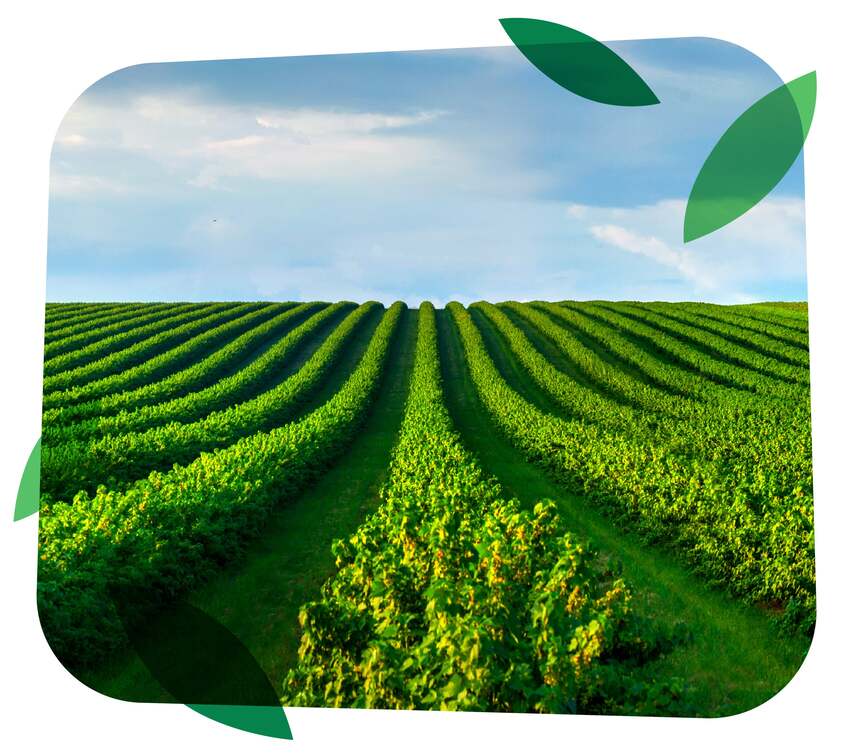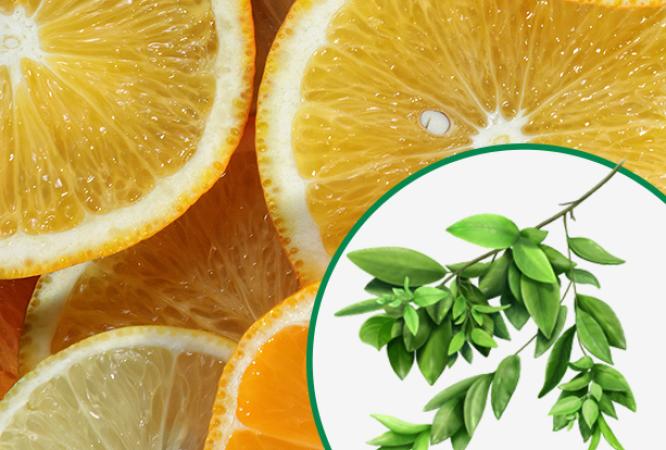An experiment was carried out on Kibbutz Naan in the years 2008 to 2013 with the goal of examining different fertilization programs for the OR (easy peeler) variety.

A comparison was carried out between fertigation with water soluble fertilizer containing chloride to fertilizers whose source of potassium was potassium nitrate (KNO3): Poly-Feed™ a soluble fertilizer for fertigation, and controlled released fertilizer (Multicote™ Agri / Multigro™). For the Multicote™ Agri treatments, fertilizer was administered in doses that were 50%-70% of the fertigation treatments rate.
The fertilizer's influence on the yield and fruit size, the content of nutrient elements in the leaves, and the trees' growth was examined.
The experiment's results showed that all the treatments tested increased the yield and diameter of the trunk in comparison to the control group, but there was not a difference in the leaf examination. The test results show an advantage using Poly-Feed™ based on potassium nitrate and with controlled released fertilizer (in a decreased fertilizer dose) as a source of non-chloried potassium in the OR (easy peeler) variety.
Introduction
The OR variety has been the leading easy peeler in Israel for the last several years, with the cultivated area reaching approximately 4,500 Hectares, yielding an average of 35 tons per Ha in the south of Israel and 40 tons per Ha in the central and northern part of the country. Due to its exquisite taste, lack of seeds and easy peeling, the OR variety retrieves high prices abroad. The commercial potential is the reason that most of the research done in the citrus industry in Israel focuses on this variety.
The accepted fertilizer treatment today is fertigation, with the fertilizer equations where the source of potassium is potassium chloride (potash - KCI) due its inexpensive cost as compared to other potassium sources. Between 2008 and 2013 an experiment was carried out which examined the influence of alternative fertilization programs for the OR easy peelers.
In this experiment the use of fertigation with the potassium source being potassium nitrate (Poly-Feed™), and in two doses of controlled released fertilizer (Multicote™ Agri) were examined.
Multicote™ Agri is a polymer coated granular fertilizer, manufactured in Israel by Haifa Group. Multicote™ Agri granules are concealed in the soil, and continuously release their nutritional elements for a number of months. It is available in a wide variety of compositions and release durations for maximum compatibility to the crops' requirements. Multicote™ Agri fertilizer is considered to be more efficient, what enables the use of smaller doses compared to other application methods. Additional advantages of Multicote™ Agri fertilizer are: low risk of being washed away and polluting ground water; reducing salinity in the area around the tree's root zone and therefore improving water absorption; and there is the possibility for differential fertilizing for every tree according to its level of growth (precise agriculture).
This study examined the influence of replacing the potassium source from potassium chloride to potassium nitrate on the vegetative and reproductive growth of the orchard; the efficiency of controlled released fertilizer in reduced doses, and the influence of potassium chloride on the tree's potential yield. An economic comparison was made between the various fertilizing programs.
The OR orchard was planted in August 2007 in Kibbutz Naan, Israel, on bitter orange (Citrus aurantium) mounts. The soil in the plot is sandy red loam, and the planting spacing is 5.5 X 3.75 meters (485 trees per Ha). The plot was irrigated during the experiment with waste water. Farmer's practice fertilization program was administered to the entire plot, and not just to the area where the experiment took place.







